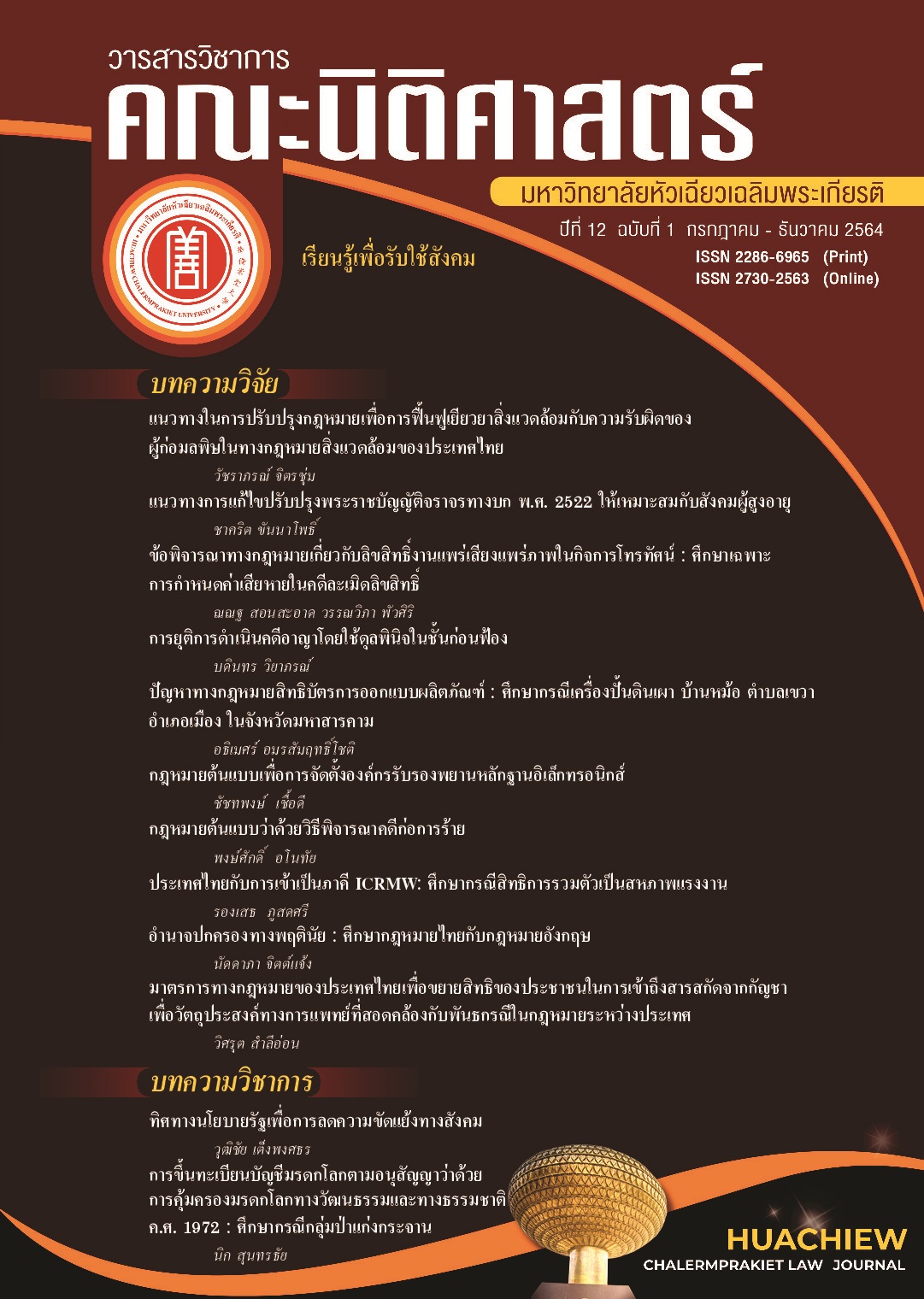MODEL LAW ON PROCEDURAL OF TERRORISM CASE
Keywords:
Terrorism, Procedure, SecurityAbstract
This research aims to develop a model law on the legal proceedings of terrorism case because this kind of crime, in which the perpetrators use weapons of mass destruction, employ well – trained militant squads, require methodical planning, conceal the procedure or destroy the evidence, and work as part of a network or an organization, brings about serious damage. These characteristics makes it difficult to prosecute the perpetrators under the criminal procedure code of Thailand, whose principles and method are inadequate and inappropriate for prosecuting terrorism cases. In addition, even the special laws, which are the executive’s instruments for preventing and combatting terrorism, are inadequate as well since they are not specially tailored to prevent and combat only terrorism but are designed to handle every incidence that may potentially destabilize the national security. To effectively maintain law and order, these special laws entrust state officials with such a very broad authority that it often leads to the transgression of some of the people’s rights and freedoms. It also causes problems regarding the admissibility of evidence. Having these drawbacks in mind, this research proposes a model law for prosecuting terrorism cases in particular. In drafting this model law, the researcher analyzes domestic laws, international laws, and foreign laws, and employs qualitative methods comprising documentary analysis, in – depth interviews, participatory design and public consultation.
The draft Terrorism Case Procedure Act, B.E…, proposed in this research, comprises… sections and… chapters. It contains principles, methods, and measures, which follow the international efficiency standard. These can be grouped into three procedures. The first one is called “pre – trial procedure” which comprises investigation, inquiry, arrest, and detention. The second is called “trial procedure” which comprises the inquisitorial trial and the trial under the associate judge system. The third and the last is called “post – trial procedure”, which comprises rehabilitation program, instead of punishment.
The suggestions of this research include the guidelines for utilizing the research findings, the legal advice, the policy advice, and the suggestions for future research.
Downloads
Published
How to Cite
Issue
Section
License
Copyright (c) 2021 Huachiew Chalermprakiet Law Journal

This work is licensed under a Creative Commons Attribution-NonCommercial-NoDerivatives 4.0 International License.
บทความหรือข้อความคิดเห็นใด ๆ ที่ปรากฏในวารสารฉบับนี้เป็นวรรณกรรมของผู้เขียนโดยเฉพาะ คณะนิติศาสตร์มหาวิทยาลัยหัวเฉียวเฉลิมพระเกียรติ และกองบรรณาธิการไม่มีส่วนรับผิดชอบหรือไม่จำเป็นต้องเห็นด้วยกับข้อคิดเห็นนั้น แต่ประการใด








